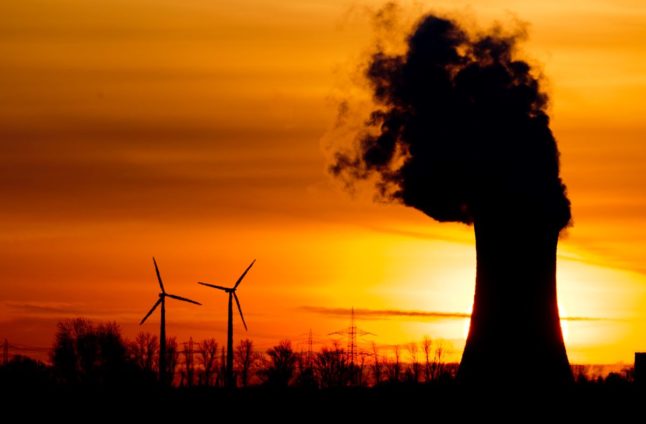Germany’s expansion of renewable energies in recent years is finally starting to making itself felt in the data.
Economics and Climate Protection Minister Robert Habeck suggests that if the country’s climate protection plans are adhered to, there is a good chance of hitting key goals.
“If we stay the course, we will achieve our climate targets for 2030,” the Green party politician said in a statement published on Friday, referring to new data from the Federal Environment Agency.
According to the Climate Protection Act, by 2030 greenhouse gas emissions in Germany should be reduced by 65 percent compared to 1990 levels.
Germany aims to achieve climate neutrality by 2045. Climate neutrality means that the country would not pollute more greenhouse gases than it can remove from the atmosphere.

In its new projection report, the Federal Environment Agency assumes a reduction of almost 64 percent. According to the ministry, this makes the goal tangible. Last year, a reduction of only 63 percent was expected, and the year before that by only 49 percent.
Germany’s Environment Agency (UBA) also expressed confidence about meeting the country’s climate targets.
UBA President Dirk Messner told Tagesschau: “We have already made a great deal of progress in climate protection.”
Climate progress moves at different rates across sectors
According to the environment agency, Germany’s progress toward its climate goals is mainly due to the faster expansion of renewable energies such as wind and solar power.
In energy production, industry, agriculture and waste management, climate targets are currently being exceeded.
READ ALSO: Who can apply for Germany’s new renewable heating grants for homes?
The same cannot be said for the transportation or building sectors, although trends have improved here compared with previous projections. In transportation, cars are a big factor that is holding the sector back from meeting its climate targets.
Per reporting by Tagesschau, transportation accounts for roughly a quarter of greenhouse gas emissions across the EU, with a large part of that coming from passenger car exhaust.
A study by the European Court of Auditors, suggests that existing regulations haven’t done much to improve the industry – with many new passenger cars on the roads polluting as much as cars from the decade before, partly because cars have trended heavier and bigger over time.
In 2023, emissions fell in the energy-intensive industry sector, but this is largely believed to be a result of high energy prices caused by supply chain disruptions due to Russia’s war of aggression on Ukraine.
But the 2030 projection accounts for industry recovering – emissions should continue to fall as long as climate protection measures are maintained.



 Please whitelist us to continue reading.
Please whitelist us to continue reading.
Member comments